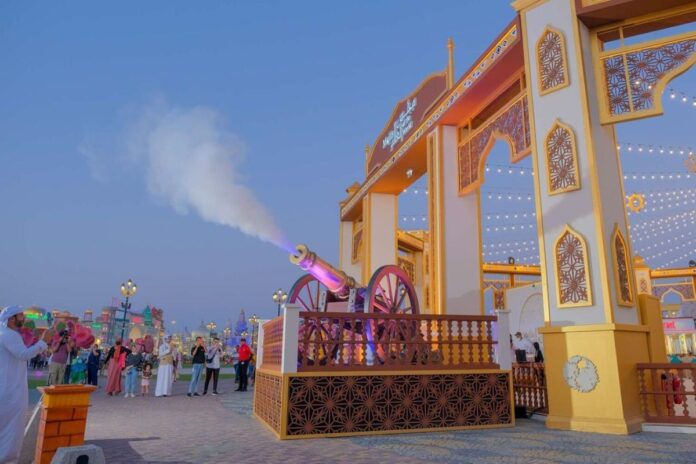When is the holy month, 4-day Eid Al Fitr weekend dates; what you need to know.
Ramadan this year will be the first holy month in four years that will be observed without any Covid-related restrictions. The holy month in 2020, 2021 and 2022 had some form of restrictions, including rules around mask use, travel, gatherings and visiting mosques.
This year, residents can host Iftar (the meal taken after sunset to end the Ramadan fast) gatherings for friends and family without any kind of restrictions. Masks are not required to be worn by worshippers inside mosques or any public places in the country.
Here, we will answer all questions you may have about the holy month:
When is Ramadan this year?
Ramadan is the ninth month in the Islamic calendar. Like all other months in the Hijri calendar, its start is determined by when the crescent moon is spotted. As per astronomical calculations, the month of fasting will most likely begin on March 23.
How long will the month last?
Though the final dates will be determined by when the crescent moon is spotted, astronomical calculations suggest that the holy month would last 29 days.
When is the Eid Al Fitr holiday?
The first day of Eid Al Fitr is likely to be on Friday, April 21. UAE residents will enjoy a four-day weekend for the Islamic festival, with the break likely from Thursday, April 20, to Sunday, April 23.
What is the weather forecast during Ramadan?
It will be a pleasant fasting experience during Ramadan as the holy month coincides with the Spring season in the UAE. Temperatures will range between 17 and 36°C.
What will the fasting duration be?
Fasting hours will be around 14 hours this year. At the start of Ramadan, fasting hours will be 13 hours and 30 minutes and by the time the month ends, the duration would have risen to 14 hours and 13 minutes.
Will schools close during the holy month?
This year, schools’ spring break and end-of-term holidays coincide with the beginning of the month. This means students will spend most of the month at home with their families.
Do non-Muslims have to fast?
Non-Muslims do not have to fast during Ramadan. According to the UAE government website, they must not eat, drink and smoke in public during the fasting hours.
“This includes chewing gum.”
Will restaurants remain open during hours?
VisitDubai says on its website that restaurants and dining areas continue to operate as normal during the day.
“Most dining spots remain open and serve food to non-Muslims, particularly in shopping malls and hotels.”
Food will also continue to be delivered as usual.
Do working hours change?
Yes, working hours are reduced by two hours during the holy month. Timings of offices, including government service centres, will change.
Malls and restaurants, however, will remain open till late.
What must one do on seeing beggars?
During the holy month, beggars try to take advantage of residents’ generosity. However, begging is illegal in the country and residents are required to report beggars to the police. One can route their charities through official channels.
News Source: Khaleej Times
